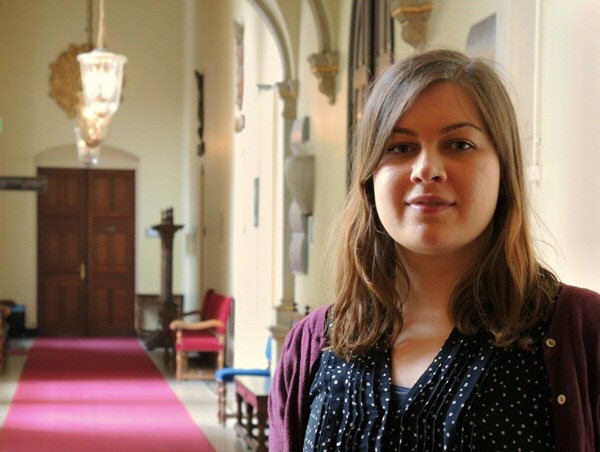My experience will aid me in becoming a more rounded, critical and reflective psychotherapist in the future
Furthermore, because the philosophy track overlaps with the general Honours College, I was able to attend a course on Academic Writing, which proved to be my most resourceful training to successfully write my bachelor thesis.
One of my most fascinating experiences in high school was my first philosophy class. The first shattering of assumptions that I never questioned before, the frisson of excitement that comes with finally understanding a complicated theory and the acquiring of techniques to more systematically dissect an argumentation. As much as I enjoyed it, I was convinced that I would never have the opportunity again to fully engage in philosophical texts in my studies or professional life as a future psychotherapist. During the first year of my bachelor’s program in psychology, I was therefore thrilled when I found out about the Honours Programme in Philosophy. During my last years of participating in the Honours College, my expectations were exceeded by far.
I am grateful that I had the opportunity to read excerpts from the most influential western philosophers with the guidance of docents from the Faculty of Philosophy. As a psychology student, the courses Philosophy of Science and Philosophy of the Social Sciences were especially helpful to not only learn the methodology of my main studies, but to understand and question it.
Psychology originated from philosophy, and only established itself as a separate department in the mid-twentieth century. Despite its focus on empirical methods, psychology is still deeply intertwined with philosophical branches of, for instance, epistemology and moral philosophy. Luckily, with the Honours Programme in Philosophy , I got the chance to get a glimpse into the influence that philosophy had and still has today on the science of psychology. I was able to practically apply these concepts in my final course on Philosophy of the Social Sciences, in which I could both critically investigate a psychological study and analyze different assumptions behind cognitive behavioral therapy.
While in psychology the assessments at the end of courses are mostly multiple choice exams, at the philosophy courses, we were given the opportunity to write essays instead. For me that was perfect because it allowed me to dive deeply into a topic and really research and reflect on it, instead of merely scratching the surface.
The philosophy classes were more time consuming than the classes of my major because of the demanding readings and time needed to write the essays, however, I always enjoyed the preparation and attendance to the classes.
It appeared to me that the students who picked the Honours Programme in Philosophy were especially passionate about learning about new ideas and always eager to discuss them. My fellow students all came from different faculties, which always added interesting new perspectives to the topics of the lectures and helped me to think interdisciplinary instead of merely within the limited framework of psychology.
Ultimately, the Honours Programme in Philosophy allowed me to explore philosophy in the depth, I hoped for during my first glimpse of it in high school. I am confident my experience at the Honours Programme in Philosophy will aid me in becoming a more rounded, critical and reflective psychotherapist in the future.
| Last modified: | 25 March 2024 2.55 p.m. |
